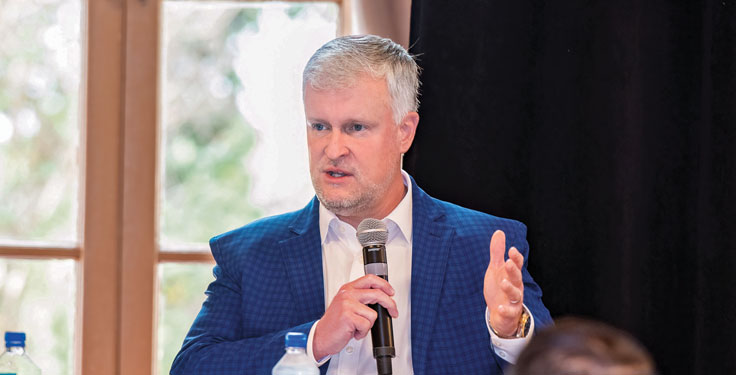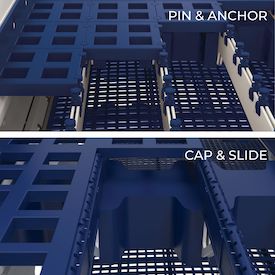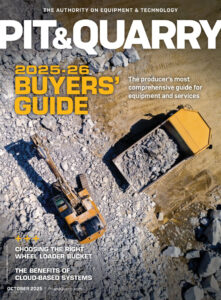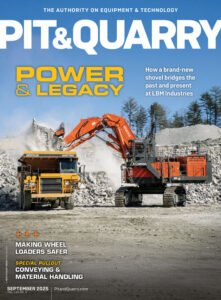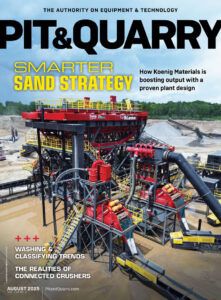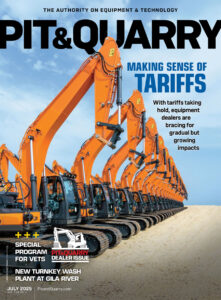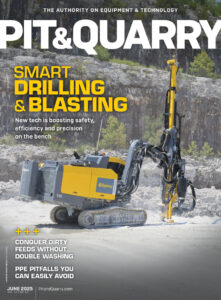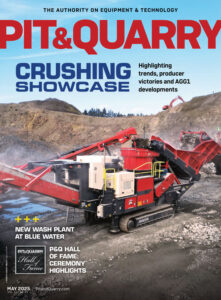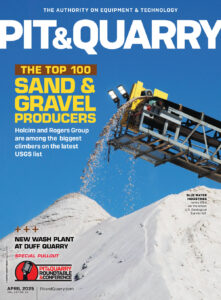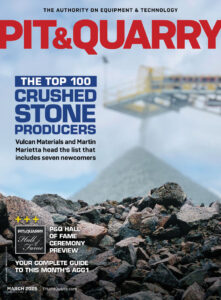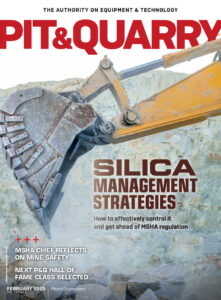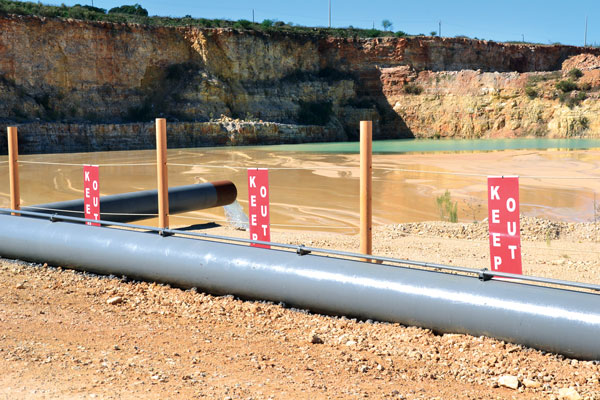
P&Q: It seems like NSSGA got off to a really good start on behalf of the aggregate industry last year with new Mine Safety & Health Administration (MSHA) assistant secretary Christopher Williamson. Typically, we see the pendulum swing, just as we do in other areas, when a new administration is in power. Are we seeing the pendulum swing once again at this point? What is the impression you get of Williamson as he governs at MSHA?
JOHNSON: Chris Williamson is a guy we can work with and one we’ve got a great relationship with. When I started in this industry, the first goal we had with MSHA was to make sure they understood we were not the coal industry; what we do is very different, and we have a very different process.
Our people work in very different environments, and we should be regulated accordingly. One-size-fits-all regulation does not work.
Chris came into it with a bit of a blank slate. He understood the coal industry as a [Sen. Joe] Manchin (D-West Virginia) staffer. He got that part of it, but he really didn’t know aggregates.
What has been refreshing is that he was very open to getting to know us. It was relationship building from us from the jump. We were behind his nomination, we got out early and pushed for his confirmation, [and] that gave us credibility to start a conversation with him, have him to our offices and then have him to one of our member facilities (Luck Stone’s Bull Run Plant).
So, he went into the job with a different understanding of who we are and what we do.
We took advantage of that blank slate, and he now says openly: ‘I get it. You guys are a very different industry than coal, and one-size-fits-all regulation does not work.’
Does that mean we won’t still have concerns that we’ll need to raise with him? We absolutely will. But what it means is we’re going to have a different kind of conversation than we used to have.
P&Q: You’ve been in our industry now for 10 years, being the leading advocate on behalf of our national association. Looking back to 2013 when you came into our industry, what were your impressions of aggregates? How do you feel our industry has progressed – or not – over the last decade? And, what do you think our future looks like over the next 10 years?
JOHNSON: I still remember my first member visit in the industry after I took the job. I passed the entrance to the operation three times before I finally stopped and called the guy who I was going to see and said: ‘I’m on the road. I have the address. I can’t find it.’ And he said: ‘We kind of like for nobody to know we’re back here off this road behind our berms. We just do what we do, and everybody just leaves us alone.’ That was the first day I realized we had a problem.
You don’t get where you want to get in the relationship business that is public policy if you are not building relationships; and, importantly, if you’re not loud and proud about who you are and what you do. It’s critical to establish the credibility and presence to drive public policy solutions through grassroots – which is really what moves the needle more than anything else.
That’s when we decided we were going to talk about our work differently. That’s why we never miss the opportunity to say, we don’t just produce stone, sand and gravel, which are essential materials for infrastructure in homes, hospitals and schools – we do that – but we do much more than that. Rocks build America. That’s the way we talk about the industry, and that’s the pride we’ve been able to really drive into everything we do in terms of being an advocate and a staff for the industry.
But, more importantly, making everyone in this industry their own best advocate is the biggest change I’ve seen since I started. Our members have become loud, proud and effective advocates for what they do and the great things this industry delivers. For me, that is very, very fulfilling and rewarding.

